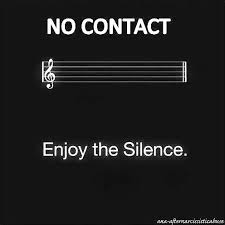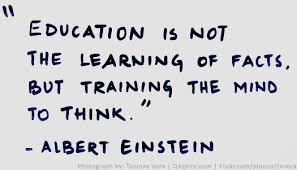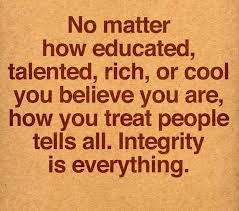
No contact is the only route for some people to take after being in a relationship with a narcissist, whether “partner, lover, family member or friend”. When we realise that what we “loved” about the person was who they said they were and fell in love with their potential rather than their “true” selves we will probably start to move away. A narcissist will react in anger at any sign that people are not convinced by their false persona any more, and who inevitably take steps towards distancing themselves from them. They will try to force their sources of supply back into the positions that they have allocated them. This can often come in the form of obsessive, invasive and threatening behaviours – which are designed to coerce and intimidate you “back into your place”.
There is absolutely no point in trying to reason with a narcissist at any time, but especially when they are trying to force you to bend to their will. If you doubt your instinct that you should leave them ask them “Why do you love me, what makes me special to you?” Take mental notes and pay extreme attention to the answer to this question, it might provide you with many answers (as painful as they may be) because more often than not the answer will be focused on the narcissist and not on you. The best solution for you could be no contact. No contact means you don’t answer phone calls, text messages, emails or little “love” notes that might be sent to you to lure you back.
It is possible that if you are living separately from the narcissist they might hang around outside your door, follow you after work or send you messages saying things like “I know where you were last night”, just to let you know that s/he is stalking you. This is overt intimidation/abuse and designed to frighten their victim into submission or to disrupt their life as much as possible. If a narcissist feels your fear they will consider it a win and that will make them feel better about themselves.
A narcissist’s “love” is their own fears and insecurities projected on to someone else, who will try their level best to make it “better” for the narcissist who will use lies, manipulation and faux “love” terms to keep you trying harder. However, if you are reading this, you probably know that what they promise is never going to happen. Like big babies, they just want you to take care of them and put a veneer on so that everything looks all right. They will let you know that whatever you do it will never be “good enough”, the harder you try the more they like it and they will keep raising the bar until you are exhausted and feel like all of the life is being sucked out of you.
Low Contact is a phrase to describe a way that you can keep in touch with a narcissist in your life, on your terms. This could be a family member, where you don’t want a huge bust up, but you do not want to play the role that has been “allocated” to you by the family, or it could be with an ex-partner, where you have to co-parent children together. The terms for low contact do not have guidelines, only you can decide what works best for you. Once you have clarified those boundaries in your own head, the challenge is to stick to them. If, for example, the person that you are going low contact with is a family member, and they were over involved in your life prior to now, they may well behave like a thwarted lover. You might well be subjected to histrionics, a smear campaign and them recruiting flying monkeys (real or imaginary) to attack your reputation and isolate you from other members and friends of the family.
A narcissistic mother will be very experienced at pushing your buttons, she may summons you to her house with pleas of not being able to cope and to try to make you feel guilty for not jumping through her loops, but it is important to stay strong and hold your ground. It is hard at the start, but it gets easier as time goes on. If an ex-partner is trying to force you in to being more reactive and involved, low contact works well. If you are parenting together or have to sell a property, avoid phone calls and text messages. Write clear and concise emails stating exactly what you expect and what you are going to do in any given situation. Text messages are too vague and can lead to misinterpretation, phone calls rely on memory – and can very easily be distorted. So email, don’t get involved in the unrelated stuff.
Another way to go low contact is to withdraw emotionally. This means:
Don’t react to his/her questions about you (they are trying to harvest information for leverage at a later date)
- Don’t react to their probes, and there will be many
- If they tell you sob stories about themselves, suggest that they seek professional help, that you do not feel qualified to help them. This is called grey rock and there is a section on this in this blog.
If it gets too intimidating, you can get a court order to tell them to stay away
Even if you go no contact and you move house or country, the narcissist can still try to influence the way that others perceive you through smear campaigns, lies and behaving like they were the victim. This can be unnerving because you don’t know what they said about you. That is something that you just have to let go of, because you cannot control what people say about you or what they believe and you might sense a shift in some of your relationships with people you know. However, if they believe the narcissist they never really knew you in the first place.
Acquaintances who believe the narcissist who has gone on a smear campaign about you, might stop inviting you to social events or give you funny looks. This will probably make you feel a bit paranoid for a while (understandably so), but a narcissist cannot maintain their mask indefinitely and eventually they will expose their true selves. Narcissists use friendship as a means to an end so if they see that their smear campaign doesn’t affect you maintaining the “friendships” with others it will not be worth the effort.





